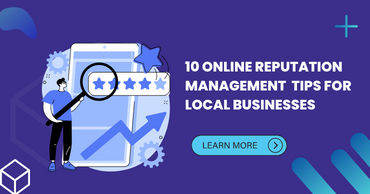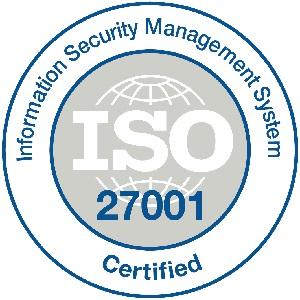
What is Online Reputation Management (ORM)?
Online reputation management is the process of monitoring and improving your company’s online presence.
How does Online Reputation Management work for your company?
It involves tracking, analyzing, and responding to online reviews and other customer feedback, as well as proactively promoting positive content about your company. The goal of ORM is to improve your company’s reputation and build trust with potential and current customers.
There are many ORM strategies that you can use to improve your online presence. One common strategy is to respond to negative reviews in a professional and prompt manner. This shows potential customers that you are committed to excellent customer service. You can also proactively promote positive content about your company, such as press releases and customer testimonials. By taking control of your online reputation, you can increase trust in your brand and attract more customers.
Whether you’re a small business or a large corporation, your reputation is one of your most valuable assets. A negative reputation can cost you customers, damage employee morale, and even lead to legal problems. Fortunately, there are steps you can take to protect your reputation. One of the most effective is to work with an Online reputation management agency.
These agencies specialize in monitoring the Internet for negative information about their clients and taking action to correct it. They also work to promote positive content about their clients, helping to improve their overall reputation. As a result, working with an online reputation management agency can be an important part of protecting your most valuable asset.
1. Ensure that your business is listed in all of the major web directories
- Google My Business, Yelp, Bing Places for Business, and Yahoo Local.
Make sure your NAP (name, address, phone number) is accurate and consistent across these directories. Listing your business on these directories helps improve your Local SEO Company in Kolkata and makes it easier for potential customers to find you.
- Claim your business profiles on social media platforms: Facebook, Twitter, and Instagram.
Make sure your profile is complete and up-to-date, and include links to your website and other online directories. You can also use social media to share news about your business, post photos, and videos, and engage with your customers.
- Create a blog on your website and post regularly.
blogging not only helps improve your website’s SEO but also helps you build a stronger relationship with your customers. Share news about your company, write product reviews or write helpful how-to articles.
- Use keyword-rich titles and descriptions for your website and directory listings.
Including keywords in your titles and descriptions helps improve your ranking in search engine results pages (SERPs). Try to include keywords that are relevant to your business and that people are likely to search for.
- Use local SEO tactics such as adding schema markup to your website’s code, creating local landing pages, and optimizing your website’s location settings.
These tactics can help improve your ranking in local SERPs and get you in front of more potential customers.
- Get positive reviews from happy customers!
People are more likely to trust online reviews than advertising or personal recommendations. Encourage customers to leave positive reviews on popular review sites like Yelp, Google My Business Optimization, and Facebook. 7. Respond to negative reviews professionally and politely.
If you do receive a negative review, don’t panic! Respond politely and professionally, apologize for the inconvenience caused, and try to resolve the issue if possible. Showing that you care about your customer satisfaction will help improve your reputation online.
2. Create an effective social media marketing strategy
You’ve probably heard it before: social media is key to a successful online presence. But what if you’re a small business with limited time and resources? Do you really need to be on all the social networks?
The answer is yes. You need to be where your customers are, and nowadays, that means being on social media. In fact, not being on social media could actually have a negative impact on your business.
Here are 10 pro tips for managing your social media accounts:
-
Create a social media strategy
Before you start posting anything, take some time to outline your goals and strategies. What do you want to achieve with social media? How will you measure success? Who will be responsible for managing the accounts? Having a plan in place will help you stay focused and avoid wasting time on pointless activities.
-
Choose the right networks
Not all networks are created equal. Some networks are better suited for certain businesses than others. Do some research and find the networks that your customers are using and join them.
-
Be consistent with your branding
Your branding should be consistent across all of your marketing materials, including your social media profiles. Use the same fonts, colors, and logos so that your followers will know who you are instant.
-
Upload high-quality photos and videos
People love visual content, so make sure to upload high-quality photos and videos whenever possible. If you don’t have any good photos or videos of your own, consider using stock images or videos instead. Just make sure you have the right to use them!
-
Use hashtags wisely
Hashtags can be a great way to connect with other people who are interested in the same things as you are. But don’t overuse them – a few well-chosen hashtags can do the trick. Also, make sure they relate to your business or campaign topic.
3. Consider Your Brands And Products
-
Claim Your Business Listing
If you haven’t claimed your business listing yet, do so immediately. This is your most basic and important step in online reputation management. Make sure all of your contact information is correct and up to date, and that you have complete and accurate listings on all the major directories (Google Local Optimization Services Kolkata, Google My Business, Bing Places for Business, Yelp, Facebook, etc.).
-
Monitor Your Reviews
Regularly monitor your online reviews and respond promptly to any negative ones. Try to address the customer’s concerns and offer a resolution if possible. If you’re unable to resolve the issue, at least try to apologize and thank the customer for their feedback.
-
Claim Your Social Media Accounts
Make sure your Company in Kolkata has official social media accounts on all the major platforms (Facebook, Twitter, LinkedIn, Google+, etc.). These accounts should be used to share news about your business, post positive reviews and testimonials from customers, and interact with fans and followers.
-
Publish Positive Content
Publish positive content about your brand and products on a regular basis. This could include blog posts, articles, infographics, images, etc. Optimize this content for search engine visibility and make sure to include links back to your website.
-
Respond To Comments And Questions
If someone leaves a comment or question on one of your social media posts or blog articles, be sure to respond promptly. Show that you’re engaged with your audience and are interested in hearing what they have to say.
-
Monitor Your Competitors
Keep an eye on what your competitors are doing online. Spy on their social media accounts, review their websites, read their blog articles – anything to get an idea of what tactics they’re using and how you can compete better.
-
Keep Up With Trends
Keep up with the latest trends in online marketing and SEO to stay ahead of the curve. This includes things like keyword research, content marketing, and social media marketing.
4. Protect the people that are linked to your business
Businesses have a responsibility to protect the safety and well-being of their employees, customers, and anyone else associated with the business. This includes both physical and emotional safety.
Businesses should provide a safe work environment, free from hazards that could cause injury. They should also have policies in place to prevent discrimination, harassment, and other forms of emotional harm. By taking steps to protect those associated with the business, businesses can create a safer and more positive work environment for everyone.
5. Implement Authorship Where Applicable
Authorship is the process of assigning credit for intellectual work and can be applied to a variety of different fields and disciplines.
In academia, authorship is typically used to identify the creator of a scholarly article or book.
In the business world, authorship can be used to assign credit for inventions or other creative works.
And in the legal field, authorship can be used to determine who is responsible for a contract or other document.
While authorship is not always applicable, it can be an important tool for promoting transparency and preventing plagiarism. When used correctly, authorship can help to ensure that credit is given where it is due.
6. Connect and Respond Online
The internet is a great place to connect with friends, family, and like-minded strangers from all over the world. However, it’s also easy to become embroiled in heated online arguments.
While it can be tempting to jump into the fray and voice your opinion, there are several good reasons to avoid getting into online arguments. First, it’s important to remember that you don’t really know the person you’re arguing with. They could be anyone, with any number of agendas.
Second, online arguments rarely lead to productive dialogue or resolution. More often, they simply devolve into name-calling and insults.
Finally, getting into an argument can be emotionally draining and take up valuable time that could be better spent elsewhere. Whereas by responding, you build rapport with every other individual.
The next time you’re tempted to get into an online argument, take a step back, be neutral and handle the situation positively.
7. Make The Investment
Your personal brand is what people say about you when you’re not in the room. In the Digital Marketing Agency age, your online presence is often the first and only impression potential employers, clients, or customers will have of you. That’s why it’s so important to make sure your online reputation is managed carefully. But managing your online reputation isn’t free. It takes time, effort, and sometimes money to make sure your name is associated with positive content on the internet.
However, the return on investment for online reputation management can be tremendous. A strong online presence can open doors to new opportunities and help you achieve your professional goals. So if you’re not already investing in managing your online reputation, now is the time to start.
8. Blogging a secret weapon for local SEO
DIY internet marketing is on the rise as small businesses attempt to establish an online presence and reach new customers. Among the most popular marketing tools is blogging, which can be an effective way to improve SEO. By posting regular content, businesses can attract new visitors and encourage repeat visits.
In addition, blogs can help to build relationships with potential customers by providing valuable information and insights. And because they are easy to share, blogs can also help to generate word-of-mouth marketing.
As a result, blogging can be a powerful tool for small businesses that are looking to boost their local SEO efforts.
User Read Also: Why Does Every Company Need an SEO Strategy?
9. Listen to online complaints
In the age of social media, it’s more important than ever for businesses to listen to their customers.
Online complaints can be a valuable source of feedback, and ignoring them can damage a company’s reputation. In some cases, complaints can even reveal larger issues that need to be addressed. By taking the time to listen to customer feedback, businesses can show that they care about their customers and are willing to take steps to improve the customer experience.
In addition, responding to complaints can help to build goodwill and boost customer loyalty. So next time you see a complaint online, don’t ignore it—take the opportunity to listen and learn from your customers.
10. An apology is authentic you or your company messes own up to it
A good apology is always difficult, and it’s even harder when you’re the one at fault. Whether you’ve made a mistake at work, your company messes up or you’ve hurt someone you care about, admitting that you were wrong can be tough. But an apology only means something if it’s genuine.
That means owning up to your mistake and taking responsibility for it. It also means being honest about how you plan to make things right. If you can do all of that, then you’re likely to find that people are more forgiving than you might expect. After all, everyone makes mistakes from time to time. The key is to learn from them and to do better next time. And that starts with a sincere apology.
Why you should choose an online reputation management agency?
In today’s digital age, your online reputation is more important than ever. What shows up when someone Googles your name can make or break a business deal, and a single negative article can do serious damage to your personal or professional brand. That’s why it’s critical to partner with online reputation management (ORM) agency that can help you take control of your narrative and protect your good name.
An experienced ORM agency will have a deep understanding of how search engines work and use that knowledge to shape the results that show up when someone searches for you. They can also help you monitor social media and take proactive steps to mitigate any negative sentiment before it has a chance to spiral out of control. In addition, an ORM agency can provide crisis management support in the event that something does go wrong. By enlisting the help of an ORM agency, you can sleep soundly knowing that your online reputation is in good hands.
To know more about ORM Strategies in-depth click here.
Final Note
As a local business, it is important to keep your online reputation in check. By following the tips we’ve outlined in this blog post, you can ensure that positive reviews outweigh any negative ones and protect your business’s online reputation. Have you tried any of these methods for managing your online reputation? Let us know how they worked out for you in the comments below!
More reasons to trust us!
Excellis IT is building a skilled team in IT support, customer support, digital marketing, and back-office services for modern companies.

Excellis it is an esteemed ISO/IEC 27001:2022 certified company

We achieved the prestigious certification by MSME in 2019

We are certified by the Central Vigilance Commission

We are an honoured members of NASSCOM since 2022







